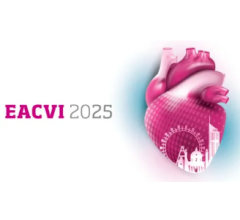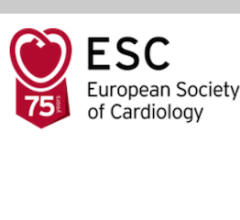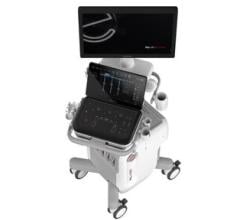
September 10, 2020 - Icosapent ethyl (Vascepa) demonstrated significant, 17 percent regression of low attenuation plaque (LAP) volume on multidetector computed tomography (MDCT) compared with placebo over 18 months in the EVAPORATE Trial presented at the European Society of Cardiology (ESC) 2020 Congress.[1]
Final results from Effect of Icosapent Ethyl on Progression of Coronary Atherosclerosis in Patients with Elevated Triglycerides on Statin Therapy trial showed a significant reduction in the primary endpoint of icosapent ethyl reducing LAP plaque volume from baseline. Whereas there was a progression of LAP plaque volume in the placebo group. There were significant differences between icosapent ethyl and placebo at study end for secondary endpoints of other types of plaque volume changes, including and sequentially total, total non-calcified, fibrofatty, and fibrous plaque volumes. All regressed in the icosapent ethyl group and progressed in the placebo group, (p<0.01 for all). The only secondary endpoint which did not achieve a significant difference between groups in multivariable modeling was dense calcium (p=0.053).
“EVAPORATE provides important mechanistic data on coronary plaque characteristics that are potentially relevant to the overall REDUCE-IT results and clinical use of icosapent ethyl,” explained Matthew Budoff, M.D., director of cardiovascular CT at The Lundquist Institute and professor of medicine at the David Geffen School of Medicine at UCLA. “The REDUCE-IT REVASC analysis presented at American Society of Preventive Cardiology last month reported an early coronary revascularization benefit signal with sustained statistical significance attained by 11 months. EVAPORATE is the first demonstration of imaging results with icosapent ethyl using MDCT. The coronary plaque reduction shown in EVAPORATE is consistent with the benefits of icosapent ethyl in cardiovascular event outcomes shown in REDUCE-IT, a separate study.”
A total of 80 patients were enrolled in the randomized, double-blind, placebo-controlled EVAPORATE trial. Patients had to have coronary atherosclerosis as documented by MDCT (1 or more angiographic stenoses with ≥20% narrowing), be on statin therapy, and have persistently elevated triglyceride (TG) levels (mean TG at baseline was 259.[2] mg/dL [+/- 78.1]). Patients underwent an interim scan at 9 months and a final scan at 18 months. The prespecified primary endpoint was a comparison of change in LAP volume at 18 months between icosapent ethyl and placebo. EVAPORATE was not powered for long-term outcomes.
The mineral oil placebo, used for consistency with REDUCE-IT, was also analyzed against plaque changes from baseline in another placebo in a separate study. Rates of plaque changes in patients randomized to mineral oil (the placebo cohort) in the EVAPORATE study were compared with rates of plaque changes in the placebo arm of a second study that used a cellulose-based placebo. There was no difference in plaque progression between mineral oil and cellulose based placebos.[2] Limitations of this single study include a small sample size. More study is needed to demonstrate the effects of Vascepa on coronary plaque to determine the relationship of such effects, if any, on cardiovascular risk reduction.
VIDEO: Icosapent Ethyl Significantly Reduces Coronary Plaque in EVAPORATE Study — Interview with Matthew Budoff, M.D.
LDL-C Cardiovascular Risk
Controlling bad cholesterol, also known as LDL-C, is one way to reduce a patient’s risk for cardiovascular events, such as heart attack, stroke or death. However, even with the achievement of target LDL-C levels, millions of patients still have significant and persistent risk of cardiovascular events, especially those patients with elevated triglycerides. Statin therapy has been shown to control LDL-C, thereby reducing the risk of cardiovascular events by 25-35%.[3] Significant cardiovascular risk remains after statin therapy. People with elevated triglycerides have 35% more cardiovascular events compared to people with normal (in range) triglycerides taking statins.[4,5,6]
About REDUCE-IT Trial
REDUCE-IT was a global cardiovascular outcomes study designed to evaluate the effect of Vascepa in adult patients with LDL-C controlled to between 41-100 mg/dL (median baseline 75 mg/dL) by statin therapy and various cardiovascular risk factors including persistent elevated triglycerides between 135-499 mg/dL (median baseline 216 mg/dL) and either established cardiovascular disease (secondary prevention cohort) or diabetes mellitus and at least one other cardiovascular risk factor (primary prevention cohort).
REDUCE-IT, conducted over seven years and completed in 2018, followed 8,179 patients at over 400 clinical sites in 11 countries with the largest number of sites located within the United States. REDUCE-IT was conducted based on a special protocol assessment agreement with FDA. The design of the REDUCE-IT study was published in March 2017 in Clinical Cardiology.[7] The primary results of REDUCE-IT were published in The New England Journal of Medicine in November 2018.[8] The total events results of REDUCE-IT were published in the Journal of the American College of Cardiology in March 2019.[9] These and other publications can be found in the R&D section on the company’s website at www.amarincorp.com.
About Icosapent Ethyl Capsules
Vascepa (icosapent ethyl) capsules are the first prescription treatment approved by the FDA comprised solely of the active ingredient, icosapent ethyl (IPE), a unique form of eicosapentaenoic acid. The drug, made by Amarin Corp., was initially launched in the United States in 2013 based on the drug’s initial FDA approved indication for use as an adjunct therapy to diet to reduce triglyceride levels in adult patients with severe (≥500 mg/dL) hypertriglyceridemia. Since launch, Vascepa has been prescribed over 8 million times. Vascepa is covered by most major medical insurance plans.
The new, cardiovascular risk indication for icosapent ethyl was approved by the FDA in December 2019.
Related Icosapent Ethyl (Vascepa) Content
VIDEO: Icosapent Ethyl Significantly Reduces Coronary Plaque in EVAPORATE Study — Interview with Matthew Budoff, M.D.
Vascepa Markedly Reduces First, Repeat and Total Cardiovascular Events
VIDEO: REDUCE-IT Trial Shows New Therapy Option for Patients With Uncontrolled Triglycerides — Interview with Deepak L. Bhatt, M.D.
FDA Grants Priority Review for Vascepa sNDA
FDA Expands Vascepa to Reduce Cardiovascular Events in Elevated Triglyceride Patients
Icosapent Ethyl Significantly Reduces Revascularizations in Statin Patients
Vascepa and Statins Significantly Reduce Cardiovascular Events
References:


 January 28, 2026
January 28, 2026 









